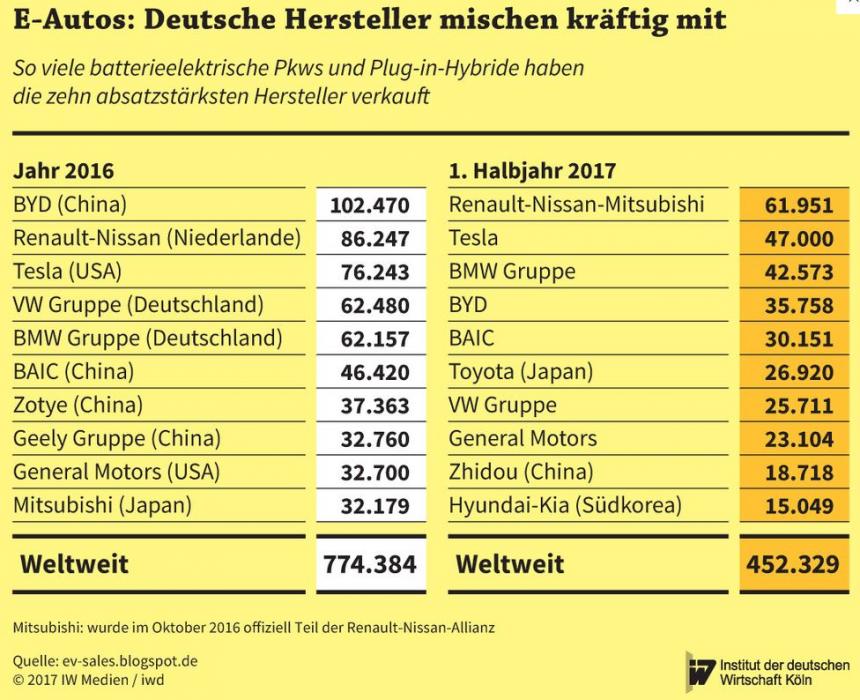Study shows how to decarbonise transport by 2035 / Diesel sales rise
Greenpeace / Wuppertal Institute for Climate, Environment and Energy
“Germany’s transport can do without oil by 2035”
Greenpeace Germany has published a study proposing “ambitious measures” to decarbonise German transport by 2035, carried out by Wuppertal Institute for Climate, Environment and Energy. To succeed, the scenario demands “a comprehensive paradigm shift in all sectors and courageous structural changes”. This includes a cut in passenger transport and slower growth of freight transport with “innovative strategies to avoid traffic”. The scenario also involves a shift from private cars to public transport, non-motorised transport, and shared mobility, and from freight transport by road to rail and inland waterways. The fossil combustion engine is replaced by e-mobility and alternative fuels. “Only if the federal government decides a date for the end of the combustion engine now, will tomorrow’s transport sector contribute its share to climate protection,” Greenpeace transport expert Benjamin Stephan said.
Read the press release in German here and the study in German here.
See the CLEW dossier The energy transition and Germany’s transport sector for more information.
Kölner Stadtanzeiger
Businesses criticise wind power restrictions in key German state
Over 60 companies have criticised government plans to substantially limit the possibilities for wind power expansion in Germany’s most populous state of North Rhine-Westphalia (NRW), Hilmar Riemenschneider writes for Kölner Stadtanzeiger. In a letter to the new state government of conservative CDU and economically liberal FDP, the companies argue that a new minimum distance of 1,500 metres between wind turbines and the nearest settlement would reduce the area available for wind power projects by 90 percent, and lead to a “massive decline” in the renewable energy source’s expansion by 2019, Riemenschneider says. The companies - renewable energy providers, utilities and turbine manufacturers from NRW and other German states - say the new state government’s plans would “abruptly and drastically alter” the legal conditions for wind-power generation and threaten up to a billion euros in annual investments.
Read the article in German here.
Find background on the election in NRW here and key points of the coalition treaty here.
Federal Office of Economics and Export Control (Bafa)
German petroleum sales on the rise in 2017
German sales of petroleum products have gone up 3.5 percent to 55.8 million tonnes in the first half of 2017, the Federal Office of Economics and Export Control (Bafa) has said in a press release. Compared to the same period last year, German diesel sales climbed 4.5 percent to 19.09 million tonnes, petrol sales by 3.4 percent to 9.2 million tonnes and naphtha sales by 5.9 percent to 8.18 million tonnes. At the same time, the country’s biodiesel sales fell by 7 percent to 1.04 million tonnes and bioethanol sales by 1.3 percent to 0.55 million tonnes. Total imports of petroleum products grew by 2.2 percent to 20.5 million tonnes, whereas crude oil imports sank by 1.5 percent to 43.8 million tonnes.
See the press release in German here.
For background, read the CLEW factsheet Germany’s dependence on imported fossil fuels.
WirtschaftsWoche
“Angela Merkel’s steel battle”
The German steel industry has found in Chancellor Angela Merkel an ally “in its fight against further CO₂-reduction requirements,” Andreas Macho writes for WirtschaftsWoche. In her annual summer press conference, Merkel said “solutions had yet to be found” for reform negotiations on the fourth phase of Emissions Trading System (ETS) in the European Union.
Read the article (behind paywall) in German here.
For background, read the CLEW article German steelworkers fight EU plans for emissions trading.
Zeitung für kommunale Wirtschaft
State premier: “Lignite indispensable until 2050“
Germany’s lignite industry received a lot of support at an energy conference in eastern Germany, economic newspaper Zeitung für kommunale Wirtschaft reports. At the Eastern German Energy Forum, the state premier of Saxony-Anhalt, Rainer Haseloff, said lignite would be indispensable in Germany until 2050. He pointed to a shortage of power storage technology and neighbouring countries' continued use of the fuel.
Read the article in German here.
See the CLEW factsheet When will Germany finally ditch coal? for more information.
The Economic Times
India, Germany ink pact to boost green energy ties
India has entered into a pact with Deutsche Gesellschaft für Internationale Zusammenarbeit (GIZ) - the German government's international development agency - to help integrate renewable energy into its grid, The Economic Times reports. India’s Union Power Minister Piyush Goyal said "clean energy has a very important role to play," in relations between the two countries.
Read the article in English here.
IW Köln
Higher demand abroad than at home for German e-cars
German carmakers are keeping up in the international race for electro mobility, even though it remains a niche market in Germany itself, the Cologne Institute for Economic Research (IW Köln) says in its weekly newsletter. “Germany is not the leading market for e-mobility, but German carmakers can still become leading manufacturers,” the IW says. German carmakers had a market share of 19 percent of all e-cars sold globally in 2016, compared to a 23 percent share in conventional passenger cars. Fewer e-cars were sold in Germany in the first half of 2017 than in Norway, despite its population being 15 times the size.
Read more about German carmakers’ fight for the top-spot in e-mobility in the CLEW dossier.


